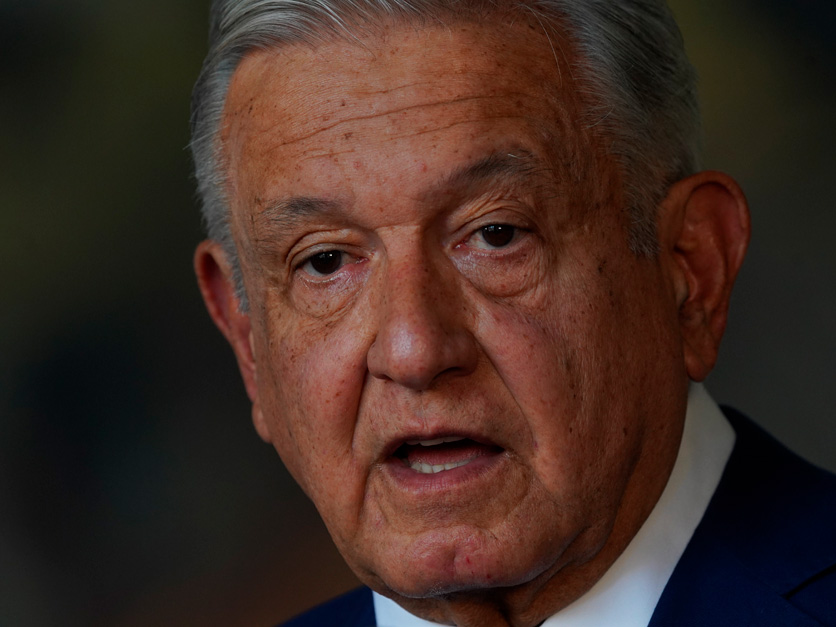It’s all political.
That’s the message from the U.S. to the three-member U.S.-Mexico-Canada Agreement panel that will be ruling on the U.S. complaint against Mexico’s attempt to block imports of genetically engineered corn.
Mexico has insisted all along that its opposition to genetically engineered corn has been based on science, but the U.S. emphatically rejects that notion in its first submission to the dispute panel that began its work after the two sides failed to reach an agreement through consultations.
“After permitting the importation and sale of GE corn in Mexico for decades without experiencing any adverse effects on human, animal, or plant life or health, and after recommitting to fair, open, and science-based trade under [USMCA], Mexico suddenly and completely reversed its policy,” the U.S. said in a Nov. 17 submission to the panel that’s tasked with resolving the dispute. “There was no new science. There was no new risk assessment. There was only a change in government.”
The document was verified by a U.S. government official with knowledge of the dispute.
The National Corn Growers Association agrees with the submission.
“We welcome this strong statement from USTR that accurately articulates the facts of this case,” NCGA President and Minnesota farmer Harold Wolle said in a statement provided to Agri-Pulse. “Agreements like this one must be appropriately enforced, especially when they are clearly violated. We are thankful that the Biden administration is going to bat for farmers on this issue, and we look forward to having the impasse resolved as soon as possible.”
 Mexican President Andrés Manuel López Obrador (AP Photo /Marco Ugarte)
Mexican President Andrés Manuel López Obrador (AP Photo /Marco Ugarte)
Mexico, the second largest foreign market for U.S. corn, has given hundreds of approvals for new GE traits in 11 separate crops — most of those traits in GE corn — but that changed after the election of Andrés Manuel López Obrador in 2018.
Mexico began refusing to approve new GE traits and quietly denying applications, a move that was extremely harmful to seed companies needing approvals in key markets around the globe before new products can be marketed.
López Obrador first issued a presidential decree in opposition to GE corn in 2020, but the U.S. did not pay much attention to it. The decree was vaguely worded and officials like Mexican Agriculture Secretary Victor Villalobos were quietly telling their U.S. counterparts not to worry because it would not impact feed corn — the bulk of U.S. exports.
But the U.S. corn industry was not convinced and rallied against the decree. Even if the 2020 decree only sought to block imports of food-grade corn, as Mexican officials argued, any form of ban would be anti-scientific and would prejudice the world on GE technology, U.S. farm groups argued.
The Biden administration began asking Mexico in 2022 to provide the science that would back up the 2020 corn decree. And then, when it became clear that the U.S. government was not going to agree to Mexico’s 2020 decree or negotiate a compromise, López Obrador issued a new decree in February 2023. That decree immediately banned imports of GE white corn and set a path for eventually blocking all GE corn.
Mexico may have recognized it would not be able to get the feed corn it needs because the new decree stressed that “the gradual substitution in the country of genetically modified maize for animal feed and industrial use for human food should be carried out based on criteria of sufficiency in supply, in congruence with the country's food self-sufficiency policies” and any “necessary scientific studies” would be completed later.
But it’s the science behind Mexico’s decrees that the U.S. continues to focus on, and industry representatives agree.
The Biotechnology Innovation Organization, or BIO, tells Agri-Pulse it will also likely be making a submission to the USMCA dispute panel.
Cut through the clutter! We deliver the news you need to stay informed about farm, food and rural issues. Sign up for a FREE month of Agri-Pulse here.
“BIO’s goal will be ensuring that science plays a prominent role in the USMCA deliberations,” the organization said in a statement to Agri-Pulse. “BIO members have direct experience with global regulatory frameworks and food and feed safety assessment processes for biotech crops.
“BIO will submit data and information to the USMCA panel that demonstrate the rigor of those safety assessments by competent authorities around the world, including Mexico’s Federal Committee for Protection from Sanitary Risks (COFEPRIS). In addition, BIO will highlight the critical role that innovation plays in increasing farm productivity and ensuring global food security, and how those goals are threatened by unpredictable, non-science-based regulatory actions that disrupt access to, and disincentivize development of, biotech crop innovations.”
But if the USMCA panel needs more, the Biden administration also submitted research, data and scientific studies published in a wide array of publications, including the Biotechnology Committee of the Mexican Academy of Sciences, Food and Agriculture Organization of the United Nations, the World Health Organization, the Pontifical Academy of Sciences and many others.
One publication even quotes Pope John Paul II.
An editorial published by New Biotechnology quotes a speech the former pontiff offered at a Pontifical Academy study week on modern biological experimentation: ‘‘I wish to recall, along with the few cases which I have cited that benefit from biological experimentation, the important advantages that come from the increase of food products and from the formation of new vegetal species for the benefit of all, especially people most in need.”
For more news, go to Agri-Pulse.com.


